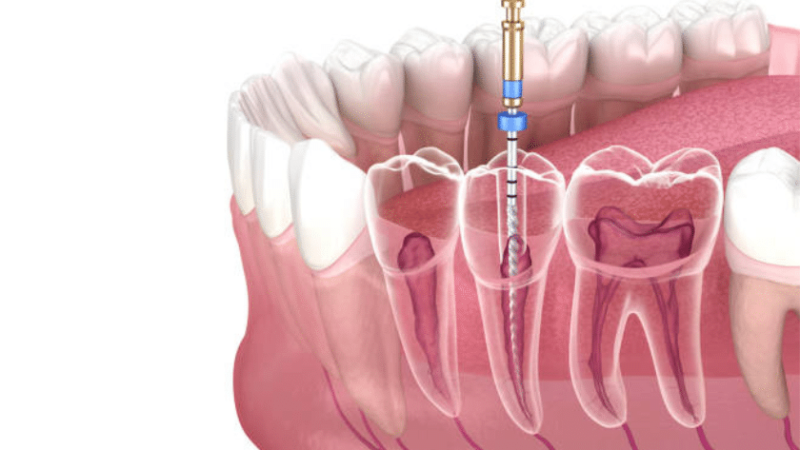What are the types of health?

Welcome to a journey towards holistic well-being! Health isn’t just about the absence of illness; it encompasses physical vitality, mental clarity, emotional stability, and strong social connections. In this blog post, we will explore the different types of health and discover how each aspect contributes to our overall wellness. So, let’s dive in and uncover the secrets to living a truly healthy life!
Definition of Health
Health is more than just a number on a scale or the absence of disease. It’s about achieving balance in all aspects of our lives—physical, mental, emotional, and social well-being. Physical health involves nourishing our bodies with nutritious food, staying active through regular exercise, and attending routine check-ups to monitor our overall wellness.
Mental health is equally crucial; it involves taking care of our minds by practicing self-care activities, managing stress effectively, and seeking professional help when needed. Emotional health focuses on understanding and processing our feelings, nurturing strong relationships with others, and navigating through times of loss or grief.
Social health emphasizes the importance of building connections with people around us, fostering positive interactions within communities, and creating a supportive network that uplifts us during challenging times. Together these components form the intricate tapestry that makes up our holistic well-being.
Physical Health
Physical health plays a crucial role in our overall well-being. Engaging in regular exercise not only helps us maintain a healthy weight but also boosts our cardiovascular health and strengthens our muscles. Whether it’s going for a run, practicing yoga, or hitting the gym, finding an activity that you enjoy can make staying active feel less like a chore and more like a rewarding experience.
In addition to exercise, adopting healthy eating habits is essential for fueling our bodies with the nutrients they need to function optimally. Incorporating plenty of fruits, vegetables, lean proteins, and whole grains into your diet can help support your physical health and provide you with sustained energy throughout the day.
Regular check-ups and screenings are also vital components of maintaining good physical health. These preventative measures can help catch any potential issues early on before they develop into more serious problems. By prioritizing physical health through exercise, nutrition, and routine healthcare visits, you are investing in your long-term well-being and quality of life.
A. Importance of Exercise
We all know that exercise is essential for our overall health and well-being. It’s not just about losing weight or getting ripped; it goes far beyond physical appearance. Exercise has a profound impact on our bodies, from boosting our immune system to improving our mood.
Regular physical activity helps strengthen our muscles and bones, increase cardiovascular fitness, and enhance flexibility. Whether you prefer running, yoga, swimming, or dancing, finding an exercise routine that suits your preferences is key to staying motivated.
The benefits of exercise extend beyond the physical realm; they also have a positive effect on mental health. Engaging in regular physical activity releases endorphins – those feel-good hormones that can help reduce stress and anxiety levels.
So next time you’re feeling sluggish or stressed out, lace up those sneakers or roll out your yoga mat. Your body and mind will thank you for it!
B. Healthy Eating Habits
Maintaining One health eating habits is crucial for overall well-being. It’s not just about counting calories; it’s about nourishing your body with the right nutrients to function at its best. Incorporating a variety of fruits, vegetables, whole grains, lean proteins, and healthy fats into your diet can help support your physical health.
Try to limit processed foods high in sugar, salt, and unhealthy fats as they can have negative effects on your health in the long run. Instead, opt for whole foods that are nutrient-dense and provide sustained energy throughout the day.
Remember to stay hydrated by drinking an adequate amount of water daily. Hydration plays a key role in digestion, circulation, and maintaining body temperature. Additionally, portion control is essential to prevent overeating and promote weight management.
By making mindful choices when it comes to food consumption, you can fuel your body effectively and improve your overall health in the process.
C. Regular Check-ups and Screenings
Regular check-ups and screenings play a crucial role in maintaining overall health. These routine visits to healthcare providers help detect any potential issues early on, allowing for timely interventions and treatments. By monitoring vital signs, blood tests, and other screening tests, healthcare professionals can identify risk factors or conditions that may not present symptoms yet.
These preventive measures are essential in preventing diseases or catching them at their earliest stages when they are most treatable. Regular check-ups also provide an opportunity for individuals to discuss any concerns or ask questions about their health with medical experts. Building a strong partnership with your healthcare provider through these regular visits fosters proactive health management and empowers individuals to take charge of their well-being.
Remember, prevention is key in maintaining good health. Prioritizing regular check-ups can lead to better outcomes and a higher quality of life in the long run. So schedule those appointments and stay on top of your health!
Mental Health
Mental health plays a crucial role in our overall well-being. Taking care of our minds is just as important as caring for our bodies. It involves more than just feeling happy; it encompasses how we think, feel, and act on a daily basis.
Engaging in self-care activities such as meditation, mindfulness, or hobbies can help maintain a healthy mindset. These practices allow us to unwind and reset from the stresses of everyday life.
Managing stress and anxiety is essential for mental wellness. Finding coping mechanisms like deep breathing exercises or talking to a trusted friend can make a significant difference in how we navigate challenging situations.
Sometimes seeking professional help from therapists or counselors is necessary to address deeper issues that may be affecting our mental health. Asking for support when needed shows strength and courage in prioritizing one’s well-being.
A. Importance of Self-care
Self-care is more than just a trendy term—it’s a crucial component of maintaining good mental health. Taking time to prioritize yourself amidst life’s hustle and bustle can work wonders for your overall well-being.
Engaging in self-care activities, whether it’s reading a book, going for a walk, or simply taking a moment to breathe deeply, allows you to recharge and refocus. It’s like giving yourself permission to hit the reset button on stress and anxiety.
Remember, self-care isn’t selfish; it’s necessary. By nurturing your own needs and happiness, you’re better equipped to handle life’s challenges with grace and resilience. So go ahead, indulge in some self-care today—you deserve it!
B. Managing Stress and Anxiety
Managing stress and anxiety is crucial for maintaining overall health and well-being. In today’s fast-paced world, it’s common to feel overwhelmed by the demands of daily life. Finding effective ways to cope with these feelings is essential.
One way to manage stress and anxiety is through relaxation techniques such as deep breathing exercises or meditation. These practices can help calm the mind and reduce feelings of tension.
Engaging in physical activity like yoga or going for a walk can also be beneficial in relieving stress. Exercise releases endorphins that improve mood and promote relaxation.
Setting boundaries and learning to say no when feeling overwhelmed can prevent unnecessary stress. Prioritizing tasks and breaking them down into smaller steps can make them more manageable.
Taking time for oneself, whether it’s reading a book, listening to music, or enjoying a hobby, is important for reducing stress levels. It’s okay to prioritize self-care without feeling guilty about it.
Seeking support from friends, family, or a therapist can provide valuable insight on how to cope with stressors effectively. Remember that managing stress is an ongoing process that requires patience and practice.
C. Seeking Professional Help
Feeling overwhelmed or struggling with your mental health is nothing to be ashamed of. Sometimes, seeking professional help can make a world of difference in how you navigate life’s challenges. Therapists and counselors are trained to provide support, guidance, and tools to help you manage your emotions and improve your overall well-being.
It takes courage to reach out for help, but it’s a sign of strength to prioritize your mental health. Therapy sessions offer a safe space where you can openly discuss your thoughts and feelings without judgment. Professional therapists can assist you in developing coping strategies and understanding the root causes of your emotional struggles.
Remember that asking for help is not a sign of weakness; it’s a proactive step towards taking care of yourself. Whether you’re dealing with anxiety, depression, trauma, or any other mental health issue, reaching out to a qualified professional can lead you on the path towards healing and growth.
Emotional Health
Understanding emotions is a crucial aspect of emotional health. It involves being aware of your feelings, acknowledging them, and finding healthy ways to express them. Emotions are like signals that provide insight into our inner world and can guide us in making decisions.
Building strong relationships plays a significant role in emotional well-being. Surrounding yourself with supportive and understanding individuals can positively impact your mental state. Good relationships can offer comfort, validation, and a sense of belonging.
Coping with loss and grief is an inevitable part of life that affects our emotional health profoundly. It’s essential to allow yourself to grieve the loss fully, whether it be the passing of a loved one or the end of a relationship. Finding healthy ways to process these emotions is vital for healing and moving forward.
A. Understanding Emotions
Understanding emotions is a vital aspect of maintaining overall health and well-being. Emotions are complex, ranging from joy and excitement to sadness and anger. It’s essential to acknowledge and accept these feelings without judgment. By recognizing our emotions, we can better understand their triggers and how they impact our daily lives.
Emotional intelligence plays a significant role in navigating relationships, decision-making, and self-awareness. Being able to identify and express one’s emotions effectively fosters healthier interactions with others. Additionally, understanding our emotional responses can help us cope with challenges more constructively.
Learning to manage intense emotions like anxiety or frustration is an ongoing process that requires patience and practice. Techniques such as mindfulness, deep breathing exercises, or journaling can be helpful in regulating overwhelming feelings. Remember that it’s okay not to have all the answers when it comes to your emotions – seeking support from loved ones or professionals is a courageous step towards growth and healing.
By developing a deeper comprehension of our emotional landscape, we equip ourselves with valuable tools for personal growth and resilience. Embrace the complexity of your feelings; they’re an integral part of what makes you uniquely human.
B. Building Strong Relationships
Building strong relationships is a fundamental aspect of emotional health. It involves fostering connections with others that are based on trust, mutual respect, and genuine care.
Communication plays a crucial role in nurturing these relationships. Being open and honest about your thoughts and feelings helps to build understanding and create stronger bonds.
Spending quality time together is also essential in building strong relationships. Engaging in activities you both enjoy can deepen the connection and create lasting memories.
Supporting each other through challenges and celebrating successes together strengthens the relationship further. Knowing that you have someone by your side through thick and thin can provide a sense of security and comfort.
In times of conflict, it’s important to approach disagreements with empathy and a willingness to listen. Resolving conflicts constructively can help strengthen the relationship rather than causing rifts.
Remember, building strong relationships takes effort from both parties involved but the rewards of having meaningful connections with others are invaluable for emotional well-being.
C. Coping with Loss and Grief
Coping with loss and grief is an inevitable part of life that can be incredibly challenging to navigate. When we experience the loss of a loved one or face a significant change, it’s normal to feel overwhelmed by emotions like sadness, anger, and confusion.
During these times, it’s important to allow yourself to grieve in your own way and at your own pace. It’s okay not to have all the answers or know exactly how you’re feeling – emotions are complex and unique to each individual.
Don’t hesitate to seek support from friends, family, or a therapist who can provide a listening ear and guidance through the healing process. Sharing your thoughts and feelings with others can help lighten the emotional burden you may be carrying.
Engaging in self-care activities such as journaling, meditation, or engaging in hobbies that bring you joy can also aid in coping with loss and grief. Remember that healing takes time – be patient with yourself as you navigate this difficult journey of recovery.
Social Health
Social Health
Social health refers to our ability to form meaningful relationships and connect with others. Building strong social connections is essential for overall well-being and can have a significant impact on mental and emotional health. Engaging in positive social interactions can provide support, reduce feelings of loneliness, and improve self-esteem.
By maintaining healthy relationships with friends, family, colleagues, and community members, we create a sense of belonging and support system that enhances our quality of life. Social activities such as volunteering, joining clubs or groups, or simply spending time with loved ones can contribute to our happiness and overall health.
Remember that good social health involves both giving and receiving support. Being there for others when they need it while also allowing yourself to accept help when necessary fosters mutual trust and strengthens bonds. Prioritizing your social connections can lead to increased resilience during challenging times and a greater sense of fulfillment in your daily life.
Incorporating strategies for enhancing your social health into your routine alongside focusing on physical, mental, and emotional well-being will result in a more holistic approach to achieving optimal health. By recognizing the importance of all aspects of health—physical, mental, emotional, and social—you are taking proactive steps towards living a balanced and fulfilling life.






